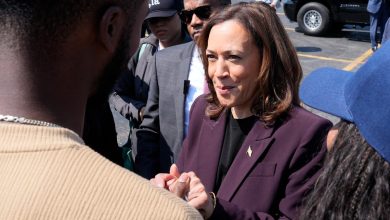Inside the secret talks behind the biggest US-Russia prisoner swap since end of Cold War
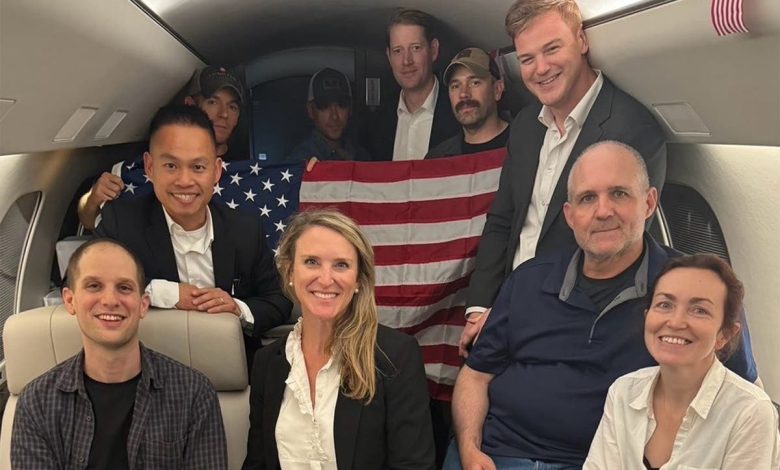
The first photo released after Russian authorities on Thursday freed Wall Street Journal reporter Evan Gershkovich, former Marine Paul Whelan, and Russian-American journalist Alsu Kurmasheva shows the three aboard a US government jet, doing something they likely hadn’t done much of in a while: smiling.
Whelan, who served in the US Marine Corps from 2003 to 2008 and worked as a cop before taking an office job, was arrested in Moscow in 2018 on espionage charges and sentenced to 16 years behind bars. Kurmasheva, who was working for Radio Free Europe/Radio Liberty in Prague, was arrested last fall by Russian security services and convicted less than two weeks ago for “spreading false information” about the Russian military. She was sentenced to 6.5 years behind bars. Gershkovich had been reporting critically, from Russia, on the country’s invasion of Ukraine, when he was arrested by the FSB on March 29, 2023, at a Yekaterinburg steakhouse.
They were finally freed thanks to intense negotiations over the past two years, before Gershkovich and Kurmasheva had even been arrested. It was a herculean effort negotiated by the White House, with crucial assists by the detainees’ colleagues, loved ones, tech moguls, a former secretary of state, at least one TV personality, the governments of Germany, Slovenia, Poland, Belarus, Norway, Turkey, and one particularly relentless figure: the 32-year-old Gershkovich’s mom.
On Thursday, after 490 days, Gershkovich walked out of a maximum-security Russian prison as part of the biggest and most consequential such exchange since the end of the Cold War. The Journal had been intimately engaged all along with the Biden administration to free its Moscow correspondent, along with Gershkovich’s mom, who had been pushing hard to make sure her son’s name stayed in the press.
In all, 24 people from both sides were released, including British-Russian dissident Vladimir Kara-Murza, who received a 25-year sentence in April 2023 on charges including treason, over his public criticisms of Russia’s unprovoked invasion of Ukraine; and anti-war artist Aleksandra Skochilenko, convicted last fall of “disseminating knowingly false information about the Russian Armed Forces.”
For their part, US authorities gave up, among others, imprisoned hacker Vladislav Klyushin, alleged money launderer Vadim Konoshchenok, credit card fraudster Roman Seleznev, a pair of accused Russian intelligence agents jailed in Slovenia, and reportedly most important of all to Putin himself, hitman Vadim Krasikov, an FSB colonel incarcerated in Germany for the 2019 murder of Chechen military commander Zelimkhan Sultanovich Khangoshvili in a Berlin park.
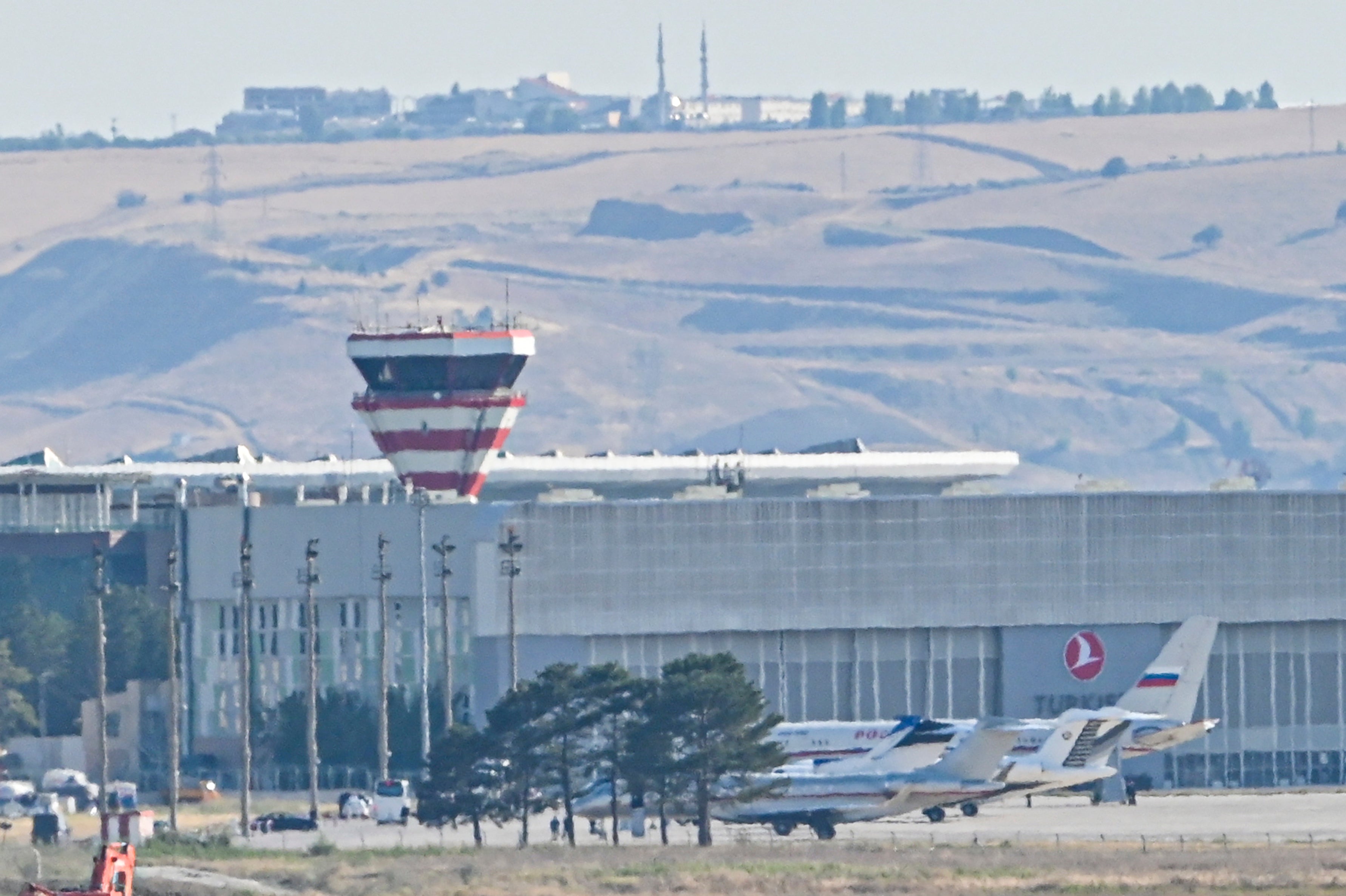
The swap took place on an airport tarmac in Ankara, which untold numbers watched live on TV. However, all along, there was ongoing activity being secretly carried out behind closed doors, which the Journal documented contemporaneously but was unable to reveal until now.
“For 16 months, Ella Milman had studied [Krasikov’s] case, daunted that such a man could be the key to unlocking her son’s freedom,” according to an article the Journal published Thursday morning.
Titled “Putin Wanted His Hit Man Back. A Mother Wanted Her Journalist Son to Come Home,” the piece described Millman, Gershkovich’s mother, as “one of an extraordinary cast of characters who worked in the shadows to advance the swap.”
“Her son’s fate rested not just on messages ferried by diplomats and spies, but years of secret interventions drawn from the ranks of prime-time TV hosts, Silicon Valley billionaires and Russian oligarchs,” it said.
Gershkovich had been moldering in solitary confinement outside Moscow at Lefortovo prison, where he was prevented from meeting with officials from the US Embassy, according to the Journal.
When Gershkovich was grabbed last year by the Russians, higher-ups at the Journal immediately contacted its best sources in Washington, D.C., to sound the alarm.
“We will get him back,” Secretary of State Antony Blinken told them, according to the paper.
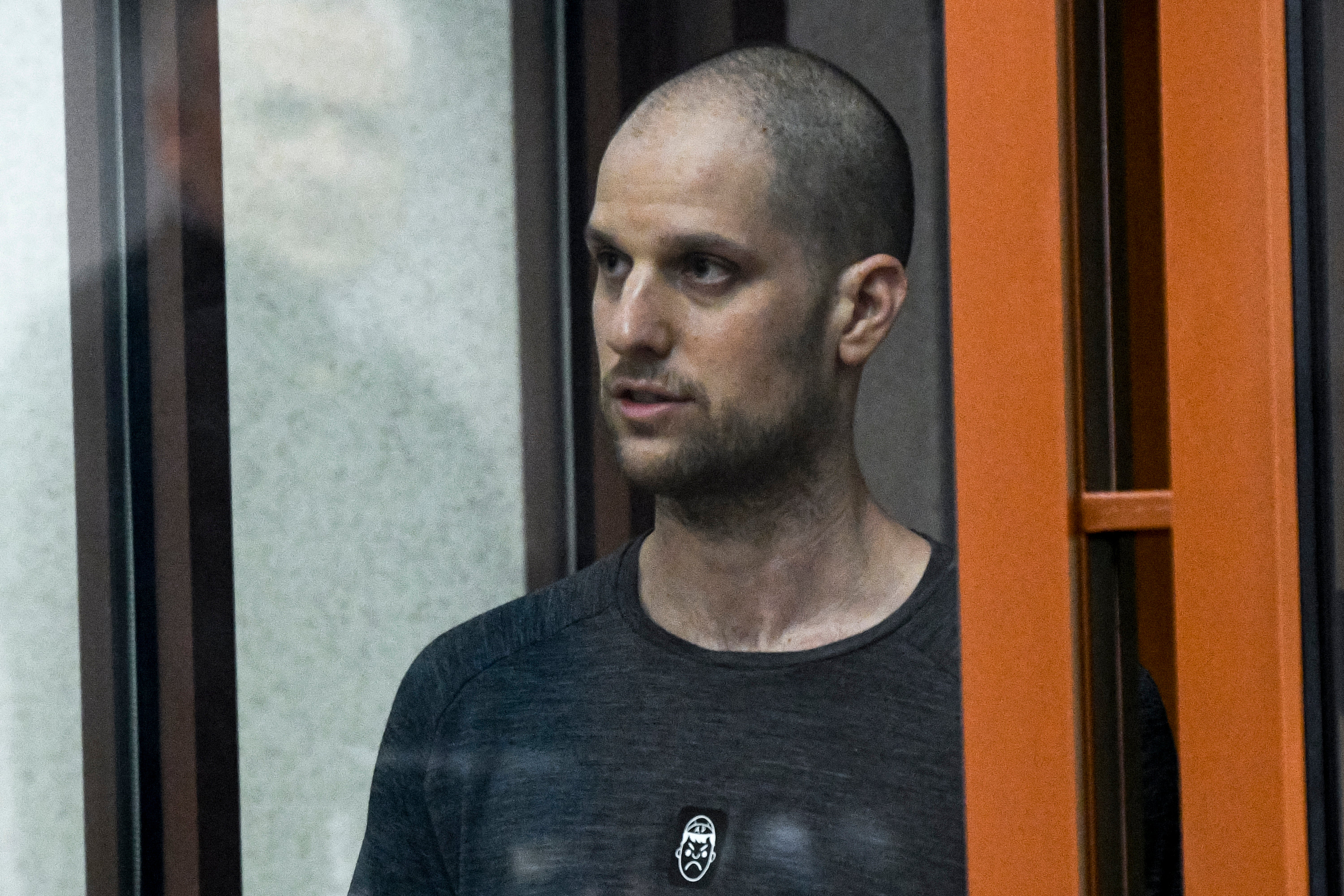
Jailing Gershkovich was Putin’s best hope of forcing the Americans to hand back Krasikov, who had been close with the Russian leader for years. Putin had, in 2022, already unsuccessfully offered to trade Whelan for Krasikov, hoping the US could convince the Germans to let him go. So, last year, Putin and his top national security apparatchiks decided to up the ante and use Gershkovich as Russia’s next bid for Krasikov, the Journal reported on Thursday, citing dozens of interviews with people knowledgeable of the details.
Meanwhile, Millman had been contacted by Special Presidential Envoy for Hostage Affairs Roger Carstens, a former Green Beret appointed by Trump and kept on the payroll by Biden. And as Carstens worked his sources, such as a Bulgarian investigative journalist who persuaded Hillary Clinton to lobby the German government about the Krasikov-Gershkovich issue, and ultimately helped devise a list of names the Russians might swap for Gershkovich, Millman found a way to get in front of Jake Sullivan, Biden’s national security adviser and the one she believed actually had the juice to make something happen, according to the Journal.
Former Google CEO Eric Schmidt was also in the mix, playing intermediary between Biden and the German government, who Schmidt said could potentially free Krasikov for an exchange that included since-deceased opposition leader Alexei Navalny, the Journal article explains. Still, it goes on, the notion of releasing a convicted killer for anyone met with staunch opposition among German officialdom and government lawyers. In the spring of 2023, however, German Chancellor Olaf Scholz relayed a message to the Journal, through his chief of staff, that releasing Krasikov “may not be easy for us, but it’s possible.”
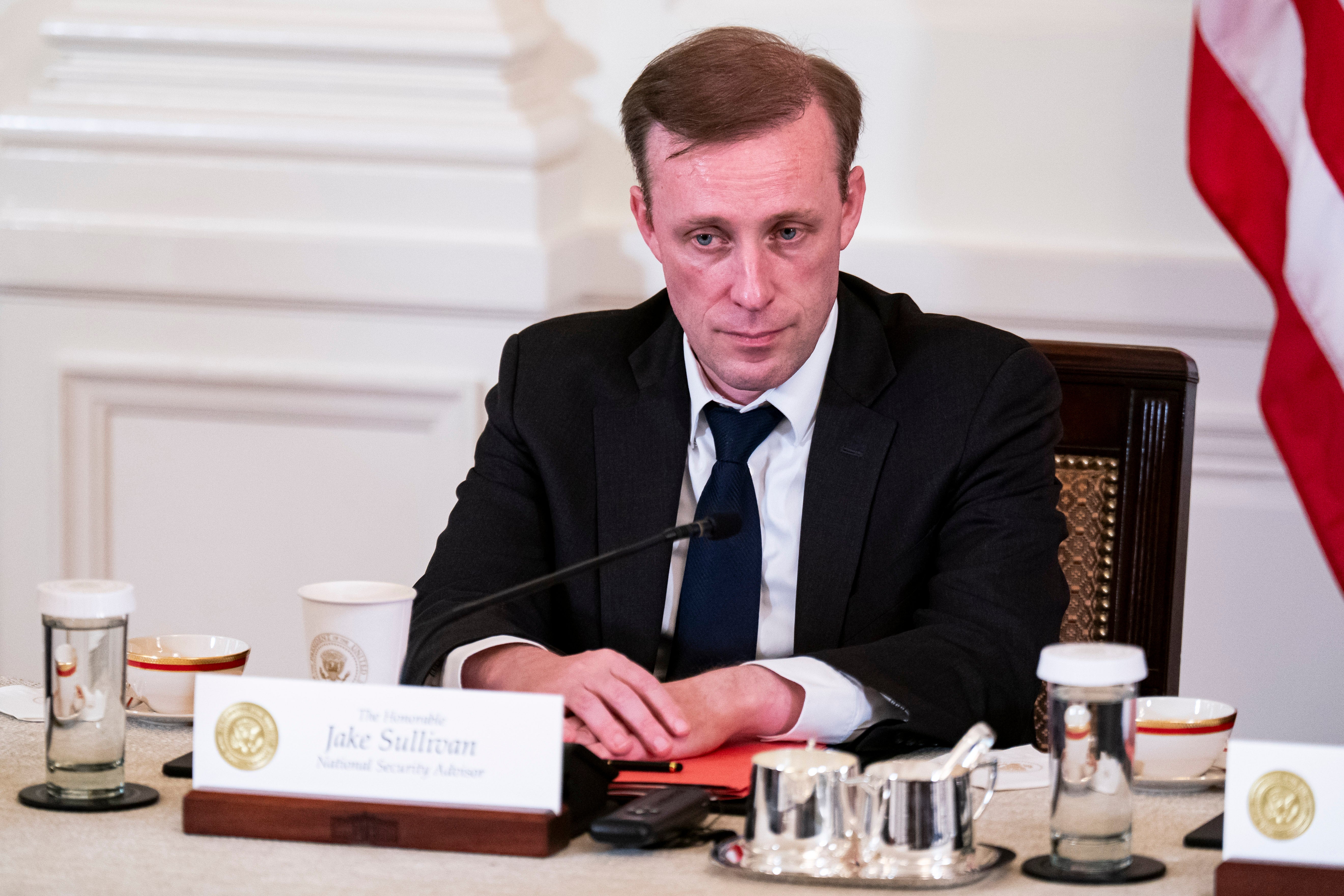
Former Google CEO Eric Schmidt was also in the mix, playing intermediary between Biden and the German government, who Schmidt said could potentially free Krasikov for an exchange that included since-deceased opposition leader Alexei Navalny, the Journal article explains. Still, it goes on, the notion of releasing a convicted killer for anyone met with staunch opposition among German officialdom and government lawyers. In the spring of 2023, however, German Chancellor Olaf Scholz relayed a message to the Journal, through his chief of staff, that releasing Krasikov “may not be easy for us, but it’s possible.”
Following multiple backchannel meetings and interactions, and right-wing TV host Tucker Carlson’s plea for Gershkovich’s release while interviewing Putin for a recent special, Scholz in February finally told Biden, according to the Journal, “For you, I will do this.” Navalny remained central to the deal, and Putin, via Russian oligarch Roman Abramovich, signaled his willingness to Carstens that he would play ball, the Journal article said, noting that FBI Director Chris Wray and Vice President Kamala Harris were now involved. And then, in February, Navalny mysteriously died at the labor camp where he was imprisoned.
The Biden administration was spooked, but in May, after several months of indecision, the president promised Millman he’d formalize the Krasikov release deal with Scholz, who needed an official request from the US to give himself political cover, the Journal article said. On July 21, while Biden was at home recovering from Covid, he called the prime minister of Slovenia, which still needed to finish making final legal arrangements for the release of the two Russian spies in its custody. An hour later, according to the Journal, Biden announced he was dropping his re-election bid.
As of today, Evan Gershkovich is free. But before the Kremlin would put him on a government plane to Ankara for the prisoner swap, they made him write a personal clemency request to Putin himself. At the bottom, according to the Journal, its intrepid reporter, who soon would be back on the job, asked Putin to grant him an interview.







